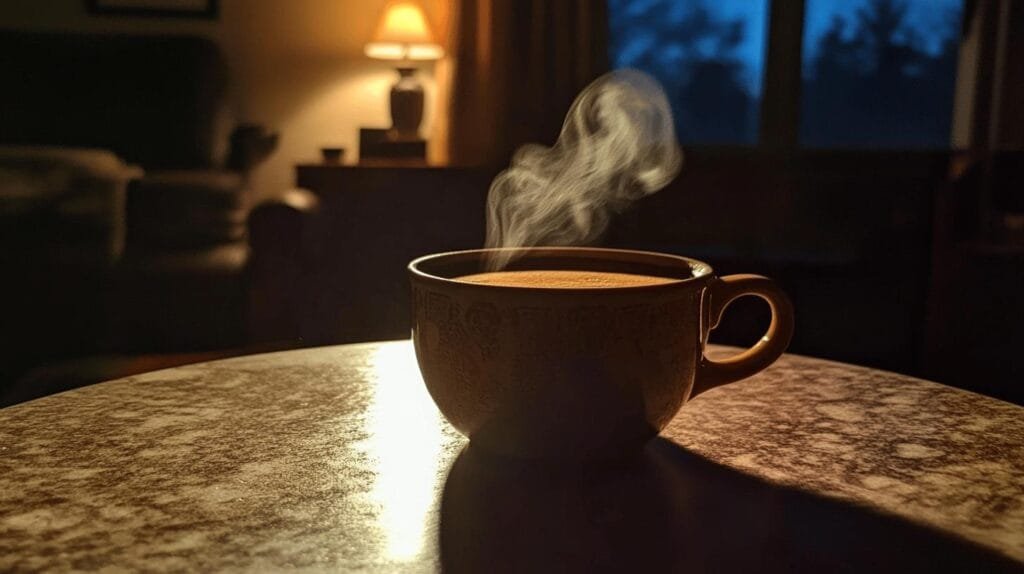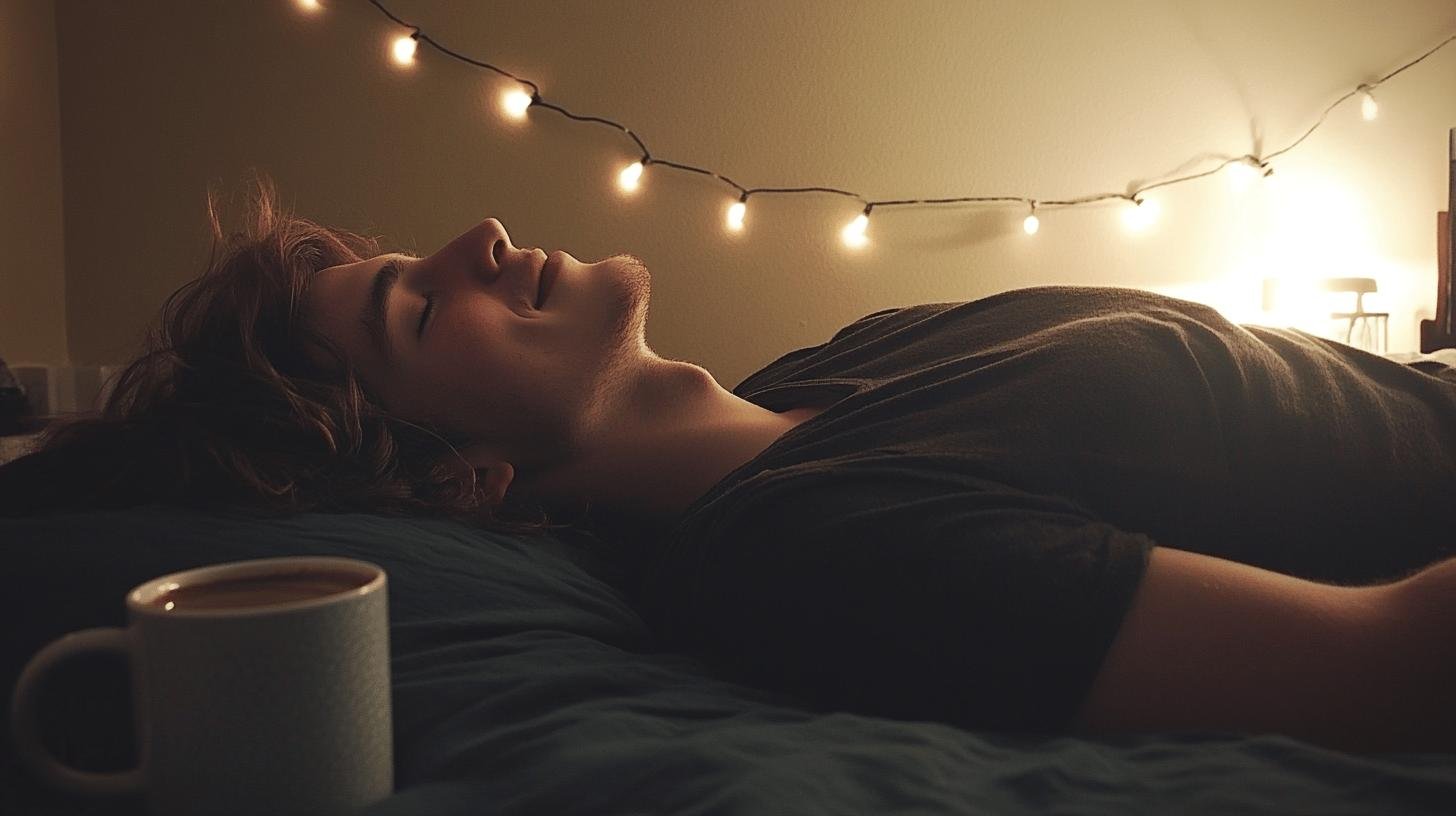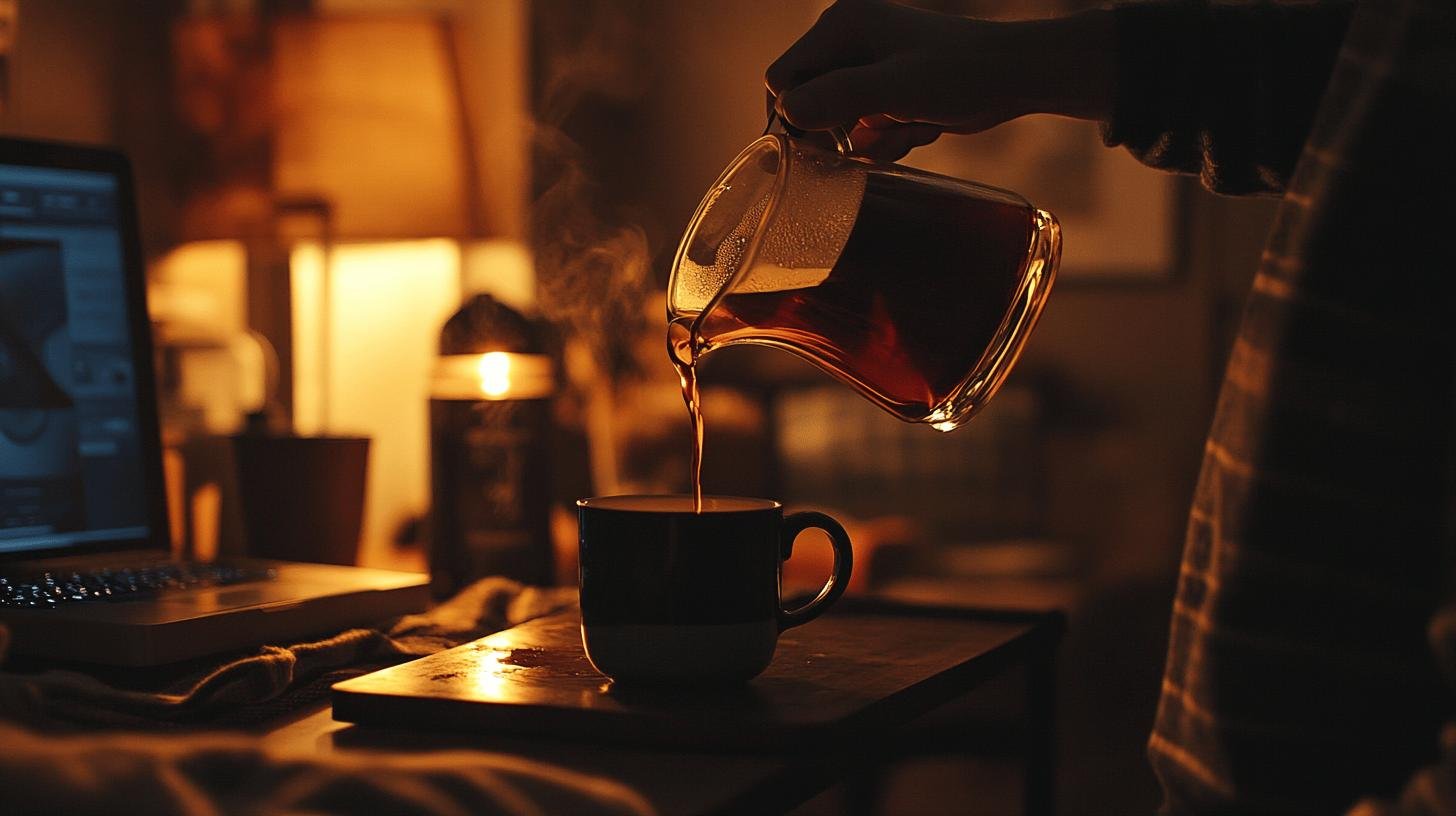
Artisanal Rituals for a Memorable Customer Experience
How can brands create a more balanced and memorable customer experience by blending artisanal product quality with thoughtful everyday rituals that keep people coming back?

Is it OK to drink decaf coffee at night? This is a question that lingers for many coffee enthusiasts who are cautious about late-night caffeine intake. Discerning the buzz around decaf benefits and sleep effects, this post dives into the nuances.
With decaf coffee boasting significantly lower caffeine levels—an impressive 97% reduction in the U.S.—many find it an ideal choice for evening relaxation. As readers navigate the complexities of caffeine sensitivity and explore potential sleep impacts, they will uncover practical advice for enjoying a peaceful night with their favorite brew.
Decaf coffee involves removing caffeine from coffee beans, which reduces caffeine levels but aims to keep the flavor. In the U.S., decaf coffee must have at least 97% of its caffeine removed.
This results in caffeine content ranging from 5 to over 35 milligrams per cup, depending on the decaffeination method.
When comparing decaf to regular coffee, the caffeine content difference is clear. Regular coffee has 70 to 140 milligrams of caffeine per 8-ounce cup, while decaf has much less.
Various methods are used to achieve this reduction, each with its own efficiency.

Is it OK to drink decaf coffee at night? Generally, yes, it’s safe for most. Decaf coffee’s low caffeine content makes it less likely to disturb sleep.
Caffeine can disrupt sleep by blocking adenosine, a neurotransmitter that promotes sleepiness. By reducing caffeine, decaf coffee minimizes this effect, allowing for restful sleep when consumed in moderation.
However, individual caffeine sensitivity varies, affecting how decaf coffee might impact sleep. Some people are more sensitive and might experience sleep issues even with small amounts found in decaf. For them, caffeine may still affect sleep by binding to adenosine receptors.
While decaf coffee may not disturb sleep, additives like sugary creamers can. Sugars can spike blood sugar, causing a “sugar crash” that might disturb sleep more than the caffeine in decaf.
Similarly, flavored syrups or whipped cream can boost energy levels, hindering the body from winding down. Choosing unsweetened or naturally flavored options can help maintain restful sleep when enjoying decaf coffee at night.
Drinking decaf coffee at night offers several health benefits due to its bioactive compounds and antioxidants. These elements provide health advantages, making decaf coffee suitable for nighttime use.
Some of the benefits of decaf coffee include:
Despite the benefits, there are potential side effects of drinking decaf coffee at night. Some might still be sensitive even to small caffeine amounts affecting their sleep patterns. Sensitivity is more likely in those highly reactive to caffeine.
Considering these factors, weighing the benefits against potential side effects based on sensitivity and preferences is essential. For caffeine-free nighttime beverages, herbal teas like chamomile offer relaxation without caffeine concerns.

Is it OK to drink decaf coffee at night? Yes, for most, decaf is suitable for nighttime. Decaf coffee can be part of evening rituals, offering comfort and relaxation. Sipping a warm beverage helps the body unwind, aiding restful sleep.
To maximize relaxation, choose the right brewing method. Techniques like Chemex or Aeropress maintain flavor while minimizing caffeine. These methods enhance aroma and subtle flavors, creating a calming atmosphere.
For the best decaf coffee for night, explore various brands and roasts. Home-roasting beans provides control over flavor and caffeine content. This ensures fresh beans, maximizing taste and minimizing caffeine, crucial for nighttime.
Home-roasting allows for experimenting with roast levels, enhancing the decaf experience to personal preferences.
When choosing decaf for nightly enjoyment, try different brands for a suitable match. Focus on bean origin and decaffeination process as they affect flavor and caffeine. Trying small batches helps find the right relaxation and taste.
Consider these criteria to ensure the decaf coffee suits preferences and enhances night relaxation:
Engaging in decaf coffee can be a delightful addition to one’s evening routine.
Examining both the caffeine content and various processing methods illuminates the subdued caffeine impact, clarifying its potential on sleep quality. Acknowledging personal caffeine sensitivity and additive choices further refines its effects on night rest.
Decaf coffee not only offers a gentle opportunity for relaxation but also presents health benefits while maintaining low risks. For those wondering, is it okay to drink decaf coffee at night, the consensus is positive.
A thoughtfully selected decaf coffee enhances evening peace and wellness.
Drinking decaf coffee at night is generally safe for most individuals. The low caffeine content typically does not interfere with sleep. However, caffeine sensitivity varies, and additives like sugars might impact sleep quality.
Decaf coffee doesn’t inherently induce sleep but supports relaxation in those who are sensitive to caffeine. Its low caffeine levels are unlikely to cause alertness, making it a suitable evening beverage.
People often drink decaf after dinner to enjoy coffee’s taste and warmth without consuming caffeine that could disrupt nighttime sleep. It complements meals without adding to caffeine consumption.
Decaf coffee contains significantly less caffeine than regular coffee, with levels between 5 milligrams and over 35 milligrams per cup, depending on the decaffeination process used.
Decaf coffee is often considered safe during pregnancy due to its low caffeine content. Expecting mothers should consult healthcare providers for personalized advice based on individual caffeine sensitivity and health conditions.

How can brands create a more balanced and memorable customer experience by blending artisanal product quality with thoughtful everyday rituals that keep people coming back?

Independent coffee shops have always been about more than caffeine—they’re hubs of creativity, connection, and care. As café culture continues to evolve, new trends are

Introduction Independent cafes win when they feel like the neighborhood’s living room and operate with the discipline of a great kitchen. Below is a quick

Discover how top specialty coffee brands create lasting loyalty through storytelling, sourcing, and community connection. Real tips from 6 industry experts.

Discover the ultimate showdown between two beloved coffee brewing methods: the French press and Chemex. Explore how each technique caters to distinct palates, with the French press delivering bold flavors and the Chemex presenting a bright, clean taste.

Unlock the secrets to brewing the perfect cup of coffee with our comprehensive guide on using a coffee scale. Discover how precise measurements enhance flavor and consistency while eliminating bitterness.

Discover how water temperature plays a vital role in brewing the perfect cup of coffee. This article delves into the ideal temperature range of 195°F to 205°F for optimal flavor extraction, enhancing the enjoyment of high-quality beans.

Discover the world of curated specialty coffee bundles, perfect for enthusiasts seeking quality and craftsmanship. This article explores the benefits of ethically sourced, small-batch beans from brands like Equipoise Coffee, offering diverse flavor profiles that elevate your brewing experience.

Discover the art of manual brewing to elevate your coffee experience! This article explores various techniques like pour-over, French press, and AeroPress, revealing how they enhance flavor and your connection to every cup.